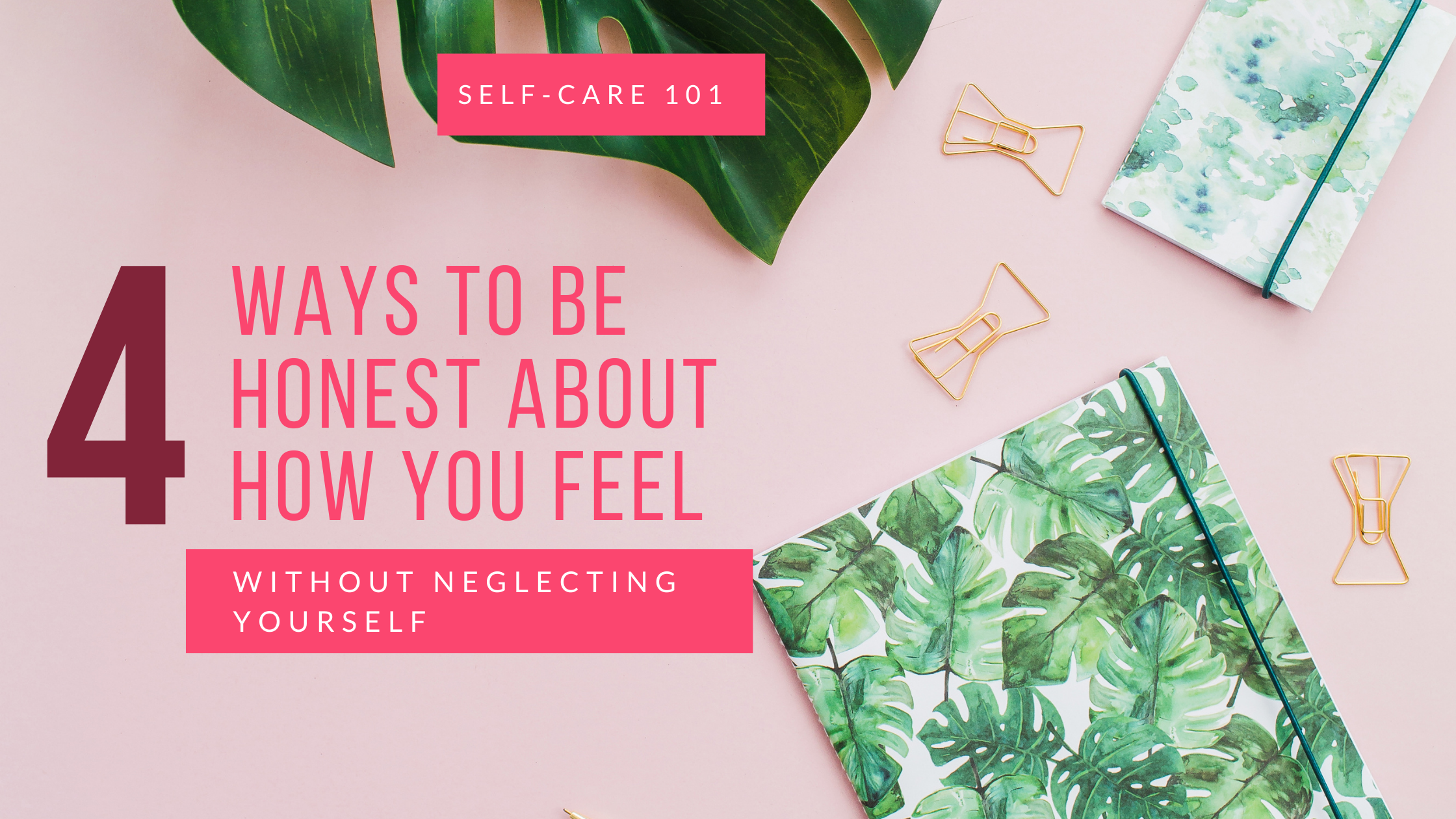
One of the most popular struggles that I see in the mindfulness arena is having the courage, to be honest about how one feels, without undermining or neglecting their wants and needs. If you feel obligated to do and be whatever others ask of you, this article is for you! Today, I want to share four ways that you can be honest about how you feel without neglecting yourself and your needs.
Establish Firm Boundaries Around Anything or Anyone That Makes You Feel Uncomfortable
Telling yourself to “suck it up”, when it comes to your feelings and intuition is a form of self-neglect. Belittling yourself for how you feel in certain situations or with certain people is not healthy. This is often a sign that you have been under the control of a narcissist, or an abusive person that made you feel bad or wrong for having feelings. If a person, place, or thing makes you feel uncomfortable, treat yourself like you would a small child.
Remove yourself from the situation, take measures to protect yourself, check-in and make sure that you are okay, and most of all, listen to yourself without judgment. You, nor anyone else is obligated to be in situations that make you feel unsafe or uncomfortable. I do not feel comfortable with this, I do not feel comfortable with you, and I do not feel comfortable here, are complete sentences that require no further explanation.
Use Your Voice, Silence Is Giving Your Approval, Communicate, Speak Up For Yourself
Have you ever been told that you talk too much? You need to be quiet. In those situations were you using your voice in an appropriate manner, or were you gossiping or causing trouble. There is most certainly a time to stay quiet, but there is also a time to scream what you know from the rooftops. If you are constantly being put in or presented with situations that do not work out for your highest good, it is time to speak up for yourself.
Being taken advantage of is a two-way street. In order for this to happen, it must be allowed. It is often allowed by way of silence and allowing others to do whatever they want to. It is important to remember that people will go as far as you allow them to.
Say No, No Matter What – Your Well-Being Is More Important Than Other People’s Expectations
Have you ever agreed to something, knowing in the back of your mind it will put you at a disadvantage, or it was something that you would rather not do? Why are you afraid to say no? Have you conditioned yourself to believe that people will not like you as much if you say no? Does a person, place, or thing give you a hard time when you say no?
Placing other people’s expectations before your well-being is not healthy and it is a sign that you are in an unhealthy relationship if this is an expectation. Say no as often as you need to, and pay attention to how others respond to your “no”. The inability to take no for an answer is a red flag that should not be ignored. It is never wrong to advocate for yourself and look out for your well-being. Anyone or any place that cannot respect this is not right for you.
Stop Giving Immediate Answers or Responses, Allow Yourself Time to Think
Have you ever come across a person or a place that expects you to make huge decisions on the spot? Have you ever had a person or place guilt or/and shame you for changing your mind in the face of an unreasonable request? These are definite red flags that should not be ignored for your own well-being. If you give in to one demand, there will be many more to follow with the expectation that you will follow through on whatever the next unreasonable request is.
Not even your spouse or children should expect your entire life to revolve around their wants and needs. A healthy relationship requires compromise, a compromise that works out for the highest good of all parties involved. Compromise requires time to work out the details and to work with others to come up with fair, balanced, and equitable solutions. If you are meeting a lot of resistance to this process it is time to re-evaluate the health of the situation or relationship that you are in.
These are just a few ways to help you feel empowered in finding your voice and improving your ability to communicate your feelings and needs with accuracy and honesty. Do you have any tips to add to my list? I would love to hear your feedback!


